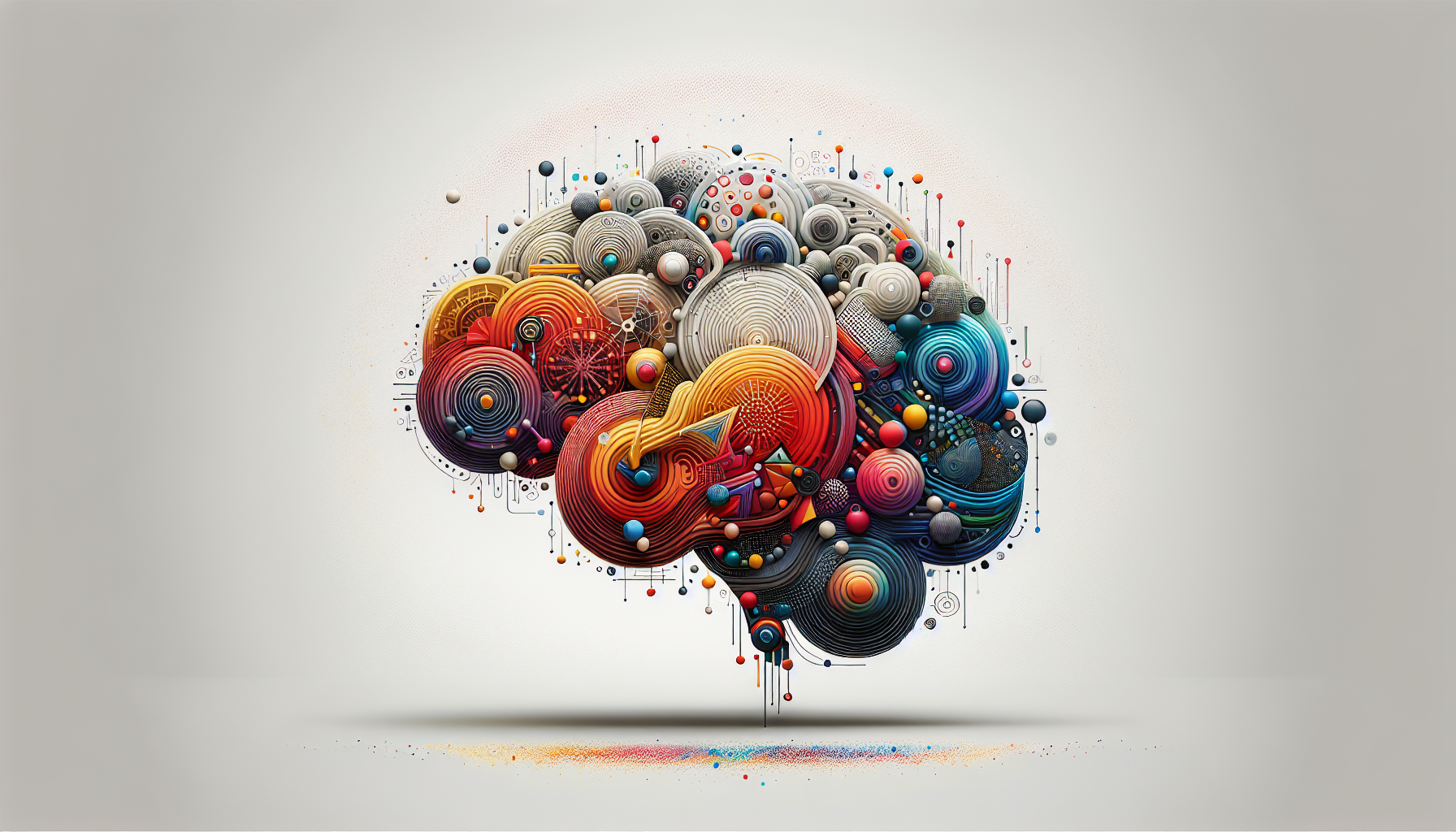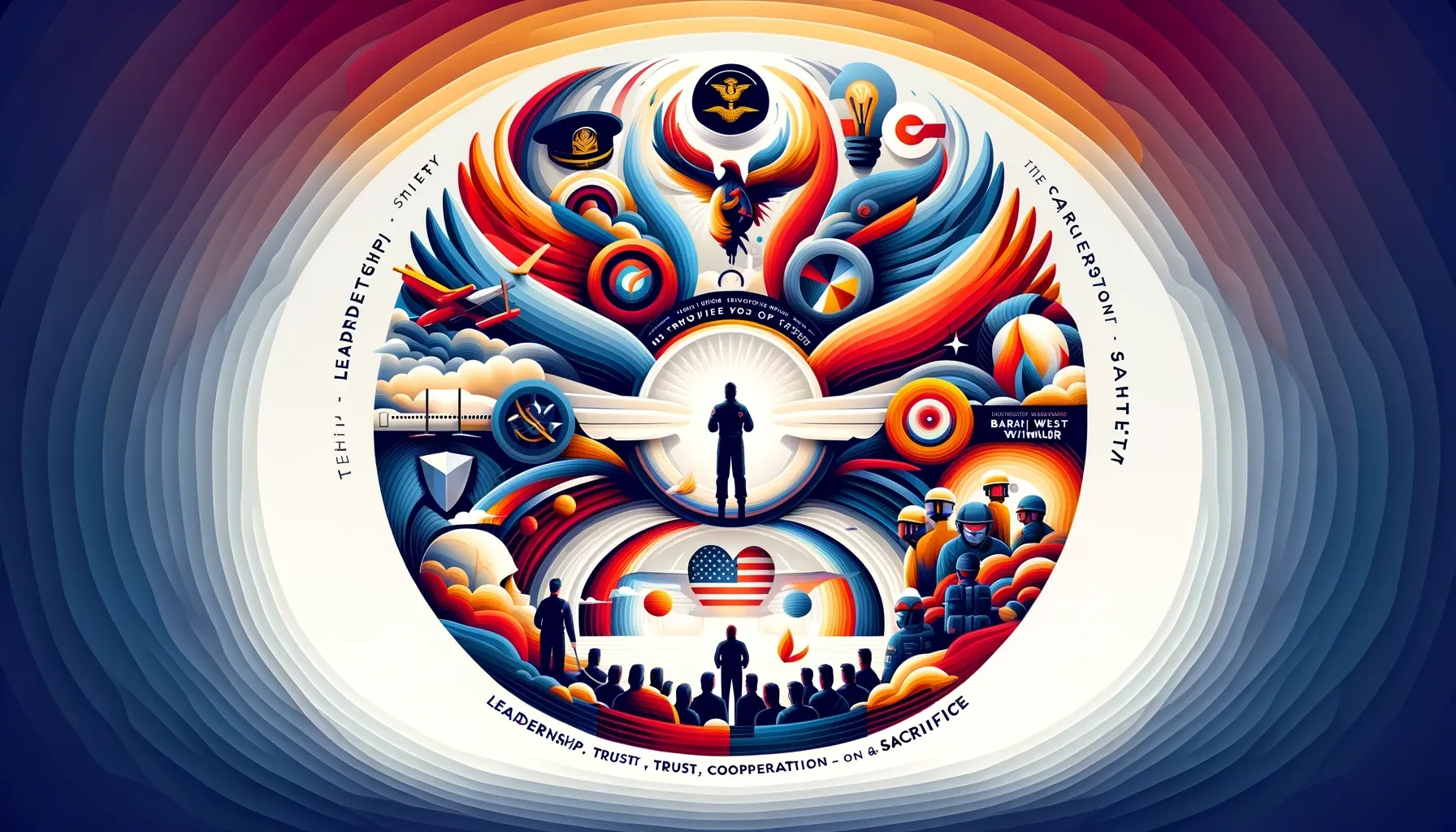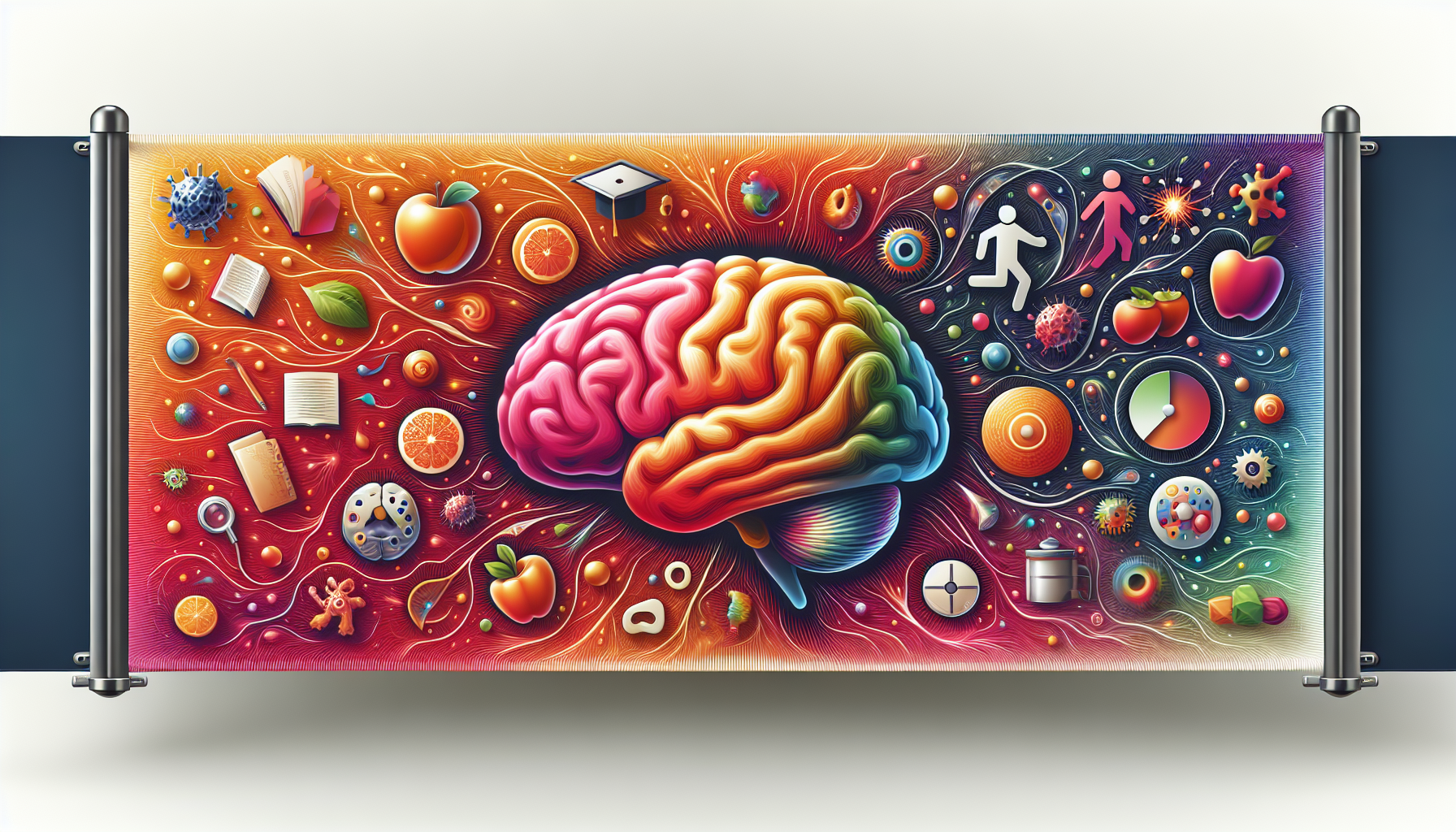On this page
Donald Hoffman's TED talk explores the complex relationship between consciousness and brain activity, challenging the assumption that humans perceive reality as it truly is. The exploration covers the neuroscience of vision, the evolutionary advantage of accurate perceptions, and the use of the desktop interface metaphor to explain our understanding of reality. The speaker suggests that our perceptions are more akin to symbolic representations shaped by evolution, designed to keep us safe rather than accurately reflect reality. The discussion includes multiple examples, such as the Australian jewel beetle and the mathematical precision of evolutionary theory, to underline the argument.
How does it apply to you?
Understanding the connection between consciousness and brain activity could have significant implications in fields like artificial intelligence, cognitive science, and psychology. It could also potentially help in devising treatments for mental disorders.
Applied Learning to Developer Enablement
The speaker's discussion about how our brain constructs what we see can be applied to the design and development of user interfaces. Understanding how users perceive and interpret what they see can help in creating more intuitive and user-friendly applications. Much like the speaker's metaphor of a computer's desktop interface, software developers create interfaces that hide complex processes from the user, enabling them to use the application more efficiently.
Developer Checklist
Perception in Software Development
Innovative Approaches in Software Development
Adaptive Behavior and Learning in Software Development
Symbolic Representation in Software Development
Summary
The Mystery of Consciousness and Brain Activity
The speaker starts by expressing fascination with the greatest unsolved mystery in science: the relationship between the brain and conscious experiences. The speaker references Thomas Huxley's 1868 statement about the unaccountability of consciousness arising from irritating nervous tissue. Despite advancements in scientific knowledge about brain activity, the connection between brain activity and consciousness remains enigmatic.
The Assumed Inability to Solve the Mystery
The speaker discusses the perspective of some experts who believe that the mystery of consciousness and brain activity can't be solved due to humans' lack of necessary concepts and intelligence. The speaker, however, disagrees with this perspective, expressing optimism and belief in the existence of a false assumption that, once corrected, could lead to a solution.
Perception and Reality
The speaker poses the question of whether we see reality as it is. Using the example of seeing a red tomato, the speaker questions the nature and accuracy of our perceptions. The speaker references historical instances where perceptions were misinterpreted, such as believing the Earth was flat or the center of the Universe. Galileo's proposition that tastes, odors, colors, and so on reside in consciousness and would be annihilated if the living creature were removed is also discussed.
Neuroscience and Vision
The speaker then delves into the neuroscience of vision, explaining that about a third of the brain's cortex is engaged in vision, and billions of neurons and trillions of synapses are engaged when we simply open our eyes and look around. Contrary to the common belief that vision is like a camera capturing objective reality, neuroscientists say that the neurons are creating all the shapes, objects, colors, and motions that we see in real time. The speaker presents demonstrations to illustrate how we construct what we see.
Reconstructing Reality
According to neuroscientists, we don't just construct our perceptions, we reconstruct reality. When we perceive something, like a red tomato, that perception is an accurate reconstruction of the properties of a real red tomato that would exist even if we weren't looking. The speaker explains that the standard argument for this reconstruction of reality is an evolutionary one, suggesting that our ancestors who saw more accurately had a competitive advantage, and we are their descendants.
Accuracy of Perceptions and Evolutionary Advantage
The speaker discusses the widely held belief that accurate perceptions are evolutionary advantageous, stating that this is often the interpretation found in standard textbooks. The assertion is that these accurate perceptions offer a survival advantage. However, the speaker questions the correctness of this interpretation and introduces the topic for further examination.
Example of Australian Jewel Beetle
The speaker uses the example of the Australian jewel beetle to illustrate his point. The male beetle, which is attracted to anything dimpled, glossy, and brown, was distracted by beer bottles discarded by humans, thinking they were female beetles. The species almost went extinct due to this misperception. This example demonstrates that the beetle's perception, while normally accurate, was not foolproof and did not always lead to a survival advantage.
Does Natural Selection Favor Reality Perception?
The speaker raises the question of whether natural selection truly favors organisms that perceive reality as it is. He suggests that we can use the mathematical precision of evolutionary theory to examine this. In the speaker's lab, hundreds of thousands of evolutionary game simulations have been run, and the results show that organisms that perceive none of reality but are only tuned to fitness tend to outcompete those that perceive reality as it is. Thus, accurate perception of reality does not necessarily provide a survival advantage.
The Desktop Interface Metaphor
The speaker introduces the metaphor of a computer's desktop interface to explain how not perceiving reality as it is can be advantageous. Just as the interface hides the complex reality of the computer's inner workings, allowing users to perform tasks more efficiently, evolution may have provided organisms with a 'perceptual interface' that hides the complexities of reality and guides adaptive behavior.
Understanding the Iconic Nature of Reality
The speaker discusses the concept of reality as we perceive it, comparing it to the icons on a computer desktop. These icons, while not literally representing the files they stand for, are taken seriously as they can lead to significant consequences if mishandled. Similarly, our perceptions, shaped by evolution, are symbolic representations of our environment designed to keep us safe. It is crucial to take these symbols seriously, but not literally, as that would be a logical error.
Challenging Existing Perceptions of Reality
The speaker points out that our current understanding of physical reality, which includes the idea that microscopic particles in space and time constitute reality, is still within the confines of our 'user interface'. The speaker argues that they are proposing an idea more radical than the existing theories. The fact that everyone sees the same train, for example, doesn't mean that the train exists independently of our perceptions. We all construct our own version of the train, just like we all construct the cube we see in a two-dimensional image.
The Evolution of Perception and Reality
The speaker argues that our perceptions have misrepresented reality throughout history. We used to believe the Earth was flat or the center of reality because it looked that way. The theory of evolution suggests that our current belief in spacetime and objects as reality is similarly incorrect. Instead, the speaker suggests that reality is more like a 3D desktop, designed to hide the complexity of the real world and guide adaptive behavior. The reality that exists when we don't look is not spacetime and physical objects.
The Role of Perception in Understanding Reality
The speaker emphasizes that when we perceive things like a red tomato or a lion, we are interacting with reality, but that reality is not the object we perceive. This extends to our perceptions of our own brains and neurons as well. The speaker suggests that the real source of cause and effect in the world is this underlying reality, not the brains and neurons we perceive. These are simply species-specific symbols.
New Possibilities for Understanding Consciousness
The speaker suggests that letting go of our intuitive but false assumptions about reality can open up new ways to think about consciousness. They discuss the possibility of reality being a vast machine or a network of conscious agents causing each other's conscious experiences. The speaker concludes by stating that the theory of evolution challenges us to recognize that perception is not about seeing truth, but about survival and reproduction.
Questioning the Perception of Reality
There's a contemplation on the idea that if evolution does not favour reality, it could potentially undermine all human endeavours, including the ability to perceive the truth. This could even extend to undermining the theory being discussed, if taken to its logical conclusion.
Perception vs Reality in Scientific Theories
The speaker, Donald Hoffman, emphasizes that this concept does not prevent us from conducting successful science. The fact that one theory, which equates perception to reality, is proven false does not halt the postulation of other theories about the nature of reality. Recognizing a false theory is seen as progress. Hence, science continues as usual.
Evolution's Impact on Reasoning
There's a discussion on how evolution could still lead to the development of reasoning. The evolutionary game simulations shown were about perception, demonstrating that our perceptions are not designed to show us reality. However, this does not necessarily apply to our logic or mathematics. The speaker suggests that there may be evolutionary pressures that guide our mathematical and logical understanding towards truth.
Consciousness and Perception of Reality
The conversation then turns to a comparison with Bishop Berkeley’s interpretation of the world, where consciousness causes matter, not the other way around. Hoffman's view is slightly different, as he does not necessarily equate the ultimate nature of reality with God. He refers to his approach as 'conscious realism', which is a distinct approach to understanding reality.
FAQs
What is the greatest unsolved mystery in science according to the speaker? The greatest unsolved mystery in science, according to the speaker, is the relationship between the brain and conscious experiences.
What is the perspective of some experts regarding the mystery of consciousness and brain activity? Some experts believe that the mystery of consciousness and brain activity can't be solved due to humans' lack of necessary concepts and intelligence.
What is the speaker's view on the mystery of consciousness and brain activity? The speaker disagrees with the perspective that the mystery can't be solved, expressing optimism and belief in the existence of a false assumption that, once corrected, could lead to a solution.
What question does the speaker pose about perception and reality? The speaker poses the question of whether we see reality as it is.
What is the neuroscience of vision according to the speaker? About a third of the brain's cortex is engaged in vision, and billions of neurons and trillions of synapses are engaged when we simply open our eyes and look around. The neurons are creating all the shapes, objects, colors, and motions that we see in real time.
What is the concept of reconstructing reality? When we perceive something, like a red tomato, that perception is an accurate reconstruction of the properties of a real red tomato that would exist even if we weren't looking.
What is the widely held belief about accurate perceptions and evolutionary advantage? The widely held belief is that accurate perceptions offer a survival advantage.
What example does the speaker use to question the correctness of the interpretation about accurate perceptions and evolutionary advantage? The speaker uses the example of the Australian jewel beetle, which almost went extinct due to a misperception caused by beer bottles discarded by humans.
What question does the speaker raise about natural selection? The speaker raises the question of whether natural selection truly favors organisms that perceive reality as it is.
What is the desktop interface metaphor introduced by the speaker? The desktop interface metaphor compares the hiding of the complex reality of the computer's inner workings by the interface to the 'perceptual interface' provided by evolution that hides the complexities of reality and guides adaptive behavior.
What is the speaker's concept of reality as we perceive it? The speaker compares reality as we perceive it to the icons on a computer desktop. Our perceptions, shaped by evolution, are symbolic representations of our environment designed to keep us safe. It is crucial to take these symbols seriously, but not literally.
What does the speaker say about our current understanding of physical reality? The speaker points out that our current understanding of physical reality, which includes the laws of physics, is fundamentally flawed and incomplete.
What is the speaker's argument about our perception of reality? The speaker argues that our perceptions have misrepresented reality throughout history. Our current belief in spacetime and objects as reality is incorrect, according to the speaker. Instead, reality is more like a 3D desktop, designed to hide the complexity of the real world and guide adaptive behavior.
What is the role of perception in understanding reality? According to the speaker, when we perceive things like a red tomato or a lion, we are interacting with reality, but that reality is not the object we perceive. This extends to our perceptions of our own brains and neurons as well. The real source of cause and effect in the world is this underlying reality, not the brains and neurons we perceive.
How can letting go of our assumptions about reality help understand consciousness? The speaker suggests that letting go of our intuitive but false assumptions about reality can open up new ways to think about consciousness. They discuss the possibility of reality being a vast machine or a network of conscious agents causing each other's conscious experiences.
How could evolution potentially undermine all human endeavours? The speaker contemplates that if evolution does not favour reality, it could potentially undermine all human endeavours, including the ability to perceive the truth. This could even extend to undermining the theory being discussed, if taken to its logical conclusion.
How does the speaker's concept affect the conduct of science? The speaker emphasizes that this concept does not prevent us from conducting successful science. Recognizing a false theory is seen as progress, hence, science continues as usual.
What is the speaker's view on evolution's impact on reasoning? The speaker suggests that evolution could still lead to the development of reasoning. The evolutionary game simulations shown were about perception, demonstrating that our perceptions are not designed to show us reality. However, this does not necessarily apply to our logic or mathematics.
What is the speaker's approach to understanding reality? The speaker refers to his approach as 'conscious realism', which is a distinct approach to understanding reality. He does not necessarily equate the ultimate nature of reality with God, unlike Bishop Berkeley’s interpretation of the world.
Glossary
The Mystery of Consciousness and Brain Activity: The greatest unsolved mystery in science, which is the relationship between the brain and conscious experiences. Despite advancements in scientific knowledge about brain activity, the connection between brain activity and consciousness remains unclear.
The Assumed Inability to Solve the Mystery: The perspective of some experts who believe that the mystery of consciousness and brain activity can't be solved due to humans' lack of necessary concepts and intelligence.
Perception and Reality: The question of whether we see reality as it is. This includes the nature and accuracy of our perceptions and how these perceptions may be misinterpreted.
Neuroscience and Vision: The scientific study of the brain and its role in vision. This includes understanding how neurons create the shapes, objects, colors, and motions that we see.
Reconstructing Reality: The idea that we don't just construct our perceptions, but we reconstruct reality. This is often explained through an evolutionary argument that our ancestors who saw more accurately had a competitive advantage.
Accuracy of Perceptions and Evolutionary Advantage: The widely held belief that accurate perceptions are evolutionarily advantageous and offer a survival advantage.
Example of Australian Jewel Beetle: An example used to illustrate the idea that accurate perception does not always lead to a survival advantage. The male Australian jewel beetle was attracted to beer bottles discarded by humans, thinking they were female beetles, almost leading to the species' extinction.
Does Natural Selection Favor Reality Perception?: The question of whether natural selection truly favors organisms that perceive reality as it is. Research has suggested that organisms that perceive none of reality but are only tuned to fitness tend to outcompete those that perceive reality accurately.
The Desktop Interface Metaphor: A metaphor introduced to explain how not perceiving reality as it is can be advantageous. This metaphor compares the perception of reality to a computer's desktop interface, which simplifies complex processes.
Understanding the Iconic Nature of Reality: The idea that reality, as we perceive it, is like the icons on a computer desktop. These icons are symbolic representations of our environment designed to keep us safe.
Challenging Existing Perceptions of Reality: The process of questioning our current understanding of physical reality, which includes the nature and accuracy of our perceptions.
Conscious Realism: An approach to understanding reality where consciousness is considered the ultimate nature of reality. It does not necessarily equate the ultimate nature of reality with God.
Evolution of Perception: The idea that our perceptions have misrepresented reality throughout history, evolving over time to hide the complexity of the real world and guide adaptive behavior.
Evolution's Impact on Reasoning: The idea that evolutionary pressures may guide our mathematical and logical understanding towards truth, despite our perceptions not necessarily showing us reality.
New Possibilities for Understanding Consciousness: The suggestion that letting go of our intuitive but false assumptions about reality can open up new ways to think about consciousness, potentially viewing reality as a network of conscious agents causing each other's conscious experiences.
Perception vs Reality in Scientific Theories: The idea that even if one theory equating perception to reality is proven false, it does not halt the postulation of other theories about the nature of reality. Recognizing a false theory is seen as progress in science.
Questioning the Perception of Reality: The contemplation that if evolution does not favor reality, it could potentially undermine all human endeavors, including the ability to perceive the truth.
Role of Perception in Understanding Reality: The idea that when we perceive things, we are interacting with reality, but that reality is not the object we perceive. The real source of cause and effect in the world is this underlying reality.
The Evolution of Perception and Reality: The argument that our perceptions have misrepresented reality throughout history, suggesting that reality is more like a 3D desktop, designed to hide the complexity of the real world and guide adaptive behavior.






